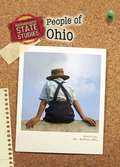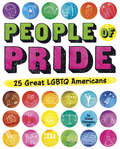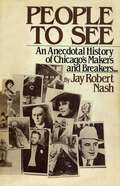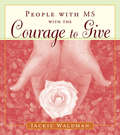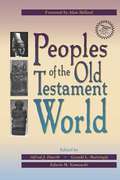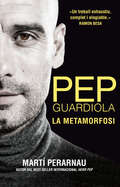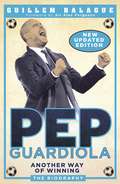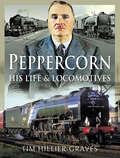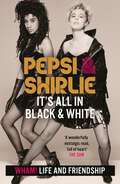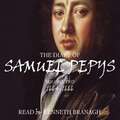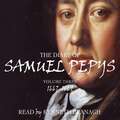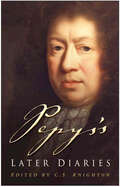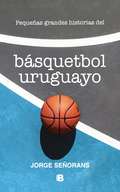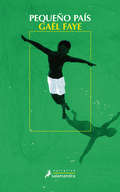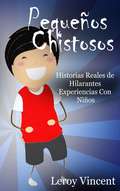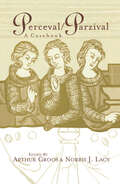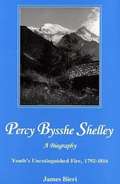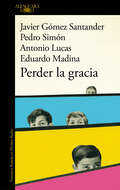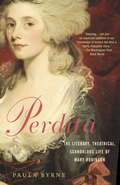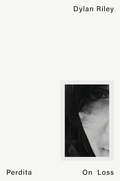- Table View
- List View
People of Ohio (Heinemann State Studies)
by Marcia SchonbergWhich presidents were born in Ohio? How has the population of Ohio changed over the years? You can find the answers to these questions in People of Ohio. This book contains fascinating stories of the many different people who have made Ohio what it is today. You will learn about the different cultural groups found in Ohio. You will find out why Ohio is not only the "Mother of Presidents," but the "Mother of Astronauts" and the "Mother of Inventors," too!
People of Pride: 25 Great LGBTQ Americans
by Chase ClemeshaWhat do Frank Ocean, Sally Ride, George Takei, and Sharice Davids all have in common? They’re all proud LGBTQ Americans! Featuring people from a variety of occupations and backgrounds, this collection of 25 short biographies demonstrates the diversity, accomplishments, and pride within the American LGBTQ community.
People to See: An Anecdotal History of Chicago's Makers and Breakers
by Jay Robert NashPeople to See is an irreverent and revealing portrait of the merchant princes and magnates Marshall Field, William Randolph Hearst, P.K. Wrigley, George Pullman; crime kings Roger Plant, Al Capone, Arnold Rothestein, who fixed the 1919 World Series and "Shoeless Hoe" Jackson who played it that way; Richard J. Daley and the long line of his predecessors who insisted Chicago was not ready for reform; the proud pioneers of journalism and literature, Ben Hecht, Carl Sandburg, Nelson Algren, Saul Bellwo, Gwendolyn Brooks; and the rich heritage of Chicago sports.This is social history dominated by vivid personalities—regal and raffish characters with a talent for making out, moving up, and having their own way. They lived and often died with old-style flair and flamboyance and Jay Robert Nash presents their stories with exactly the right flavor.All the scattered fragments of the record of these originals have been searched and woven into the fabric of Chicago history. Here are zesty chronicles of those who imposed their wills in pursuit of power, profit, and pleasure int he great inland city that yields only to the bold.
People with MS with the Courage to Give: (stories Of Successful People With Multiple Sclerosis)
by Jackie WaldmanTwenty-four individuals with multiple sclerosis share their stories—and deliver one inspiring message about overcoming adversity.We don’t get to choose whether or not we have multiple sclerosis, but we do get to decide how we live with it. Author and MS warrior Jackie Waldman delivers a personal message of hope in these twenty-four tales of individuals who did the unthinkable, went against the grain, and proved that an MS diagnosis does not have to box you in.Within these pages, you’ll meet individuals with MS symptoms—but that didn’t stop them from living their best life. You’ll meet Alicia Conill, an M.D. turned founder of The Disability Experience. You’ll also meet Anthony Zaremba, an employee almost fired because of his shaking hands, later recognized for his success in community gardens and Brooklyn wheelchair access. People with MS with the Courage to Give offers:Powerful stories that show how nervous system disorders don’t define youInspirational quotes to boost your self-esteem throughout the dayAdvice from people just like you who encourage you to do the impossible
Peoples Of The Old Testament World
by Alfred Hoerth Gerald Mattingly Edwin Yamauchi Alan MillardDetailed historical and archaeological essays give insight into the many people groups who interacted with and influenced ancient Israel.
Pep Guardiola. La metamorfosi
by Marti PerarnauLa descripció i anàlisi dels ambiciosos objectius tàctics, estratègics i competitius que en Pep Guardiola ha plantejat a Manchester, després del seu pas pel futbol alemany i la influència que aquest ha exercit en la seva filosofia. Aquest llibre retrata la metamorfosi que ha viscut a Alemanya el nou entrenador del Manchester City. El futbol alemany ha provocat importants canvis en Pep Guardiola, que ha captat nous conceptes i idees i els ha incorporat al seu model de joc; model que conserva els fonaments essencials, però amb variants i modificacions fruit del canvis que Alemanya ha provocat en Guardiola. les adversitats superades, les noves idees que enriqueixen el seu model de joc i el gran desafiament que afronta amb el Manchester City. Martí Perarnau ha conviscut tres anys amb Guardiola i el seu cos tècnic a Munich i narra amb detall la substància d'aquesta transformació. Pep és avui dia millor entrenador perquè el seu catàleg tàctic és més variat,menys dogmàtic i més eclèctic fins al punt d'haver introduït canvis fonamentals en la forma de treballar i en la seva metodologia. La crítica ha dit...«No és un llibre de culte a Guardiola sinó un llibre culte sobre Guardiola.»Isaac Lluch, Diari Ara «És un llibre de cultura, talent i hàbits.»Mònica Terribas, El matí de Catalunya Ràdio «Un treball molt exhaustiu de tot el que envolta la feina de Guardiola.»Roger Saperas, Tu diràs, RAC 1«El llibre teixeix un intens diàleg amb entrenadors, jugadors, esportistes i personalitats que han tingut -o tenen- una enorme influència en la manerad'entendre el futbol, la competició i -al mateix nivell que les altres- la vida.»Esteve Plantada, Nació Digital «Es una autèntica meravella. Gaudireu cada pàgina de les 462.»Vicente Ortega, Radio Marca «És un llibre sobre futbol que, tot i així, no parla de futbol sinó d'art,de vivències, de perseguir la bellesa -la de l'esport- que està molt per sobre de les misèries oficials, antigues i ràncies.»Josep Maria Fonalleras, El Periódico «Ambmicroscòpica minuciositat, el periodista Martí Perarnau ha publicat Pep Guardiola. La Metamorfosi, un llibre que eleva el treball d'entrenador a categoria de substància científica. L'interès del relat radica en la diversitat d'anàlisi i la crònica d'un mètode evolutiu.»Sergi Pàmies, La Vanguardia «Un llibre imprescindible per a entendre el mètode de treball d'aquest entrenador.»Luis F. Rojo, Marca «Una obra espectacular. Hauria de ser de lectura obligatòria a les escoles d'entrenadors. Tanmateix és un llibre més que recomanable per qualsevol aficionat al futbol que estigui interessat en aprofundir una mica més en conceptes que són fonamentals per entendre el joc.»Lluís Lainz
Pep Guardiola: Another Way of Winning: The Biography
by Guillem Balague'A must-read for anyone who's doubted Pep's influence, from handing the power to Barça's homegrown crop to never betraying his childhood romanticism of the game Four Four Two'Balague's insightful biography presents Guardiola as a relentless perfectionist - a man obsessed with the minutiae of football, often unable to switch off' SPORTThis fully updated edition of the international bestseller includes Manchester City's incredible 2017-18 league triumphPep Guardiola is the most successful and sought-after football coach in the world. After being appointed first-team manager in 2008, he transformed Barcelona into arguably the greatest club side of all time, winning thirteen trophies in four years, and he won the Double twice in his three years in charge of Bayern Munich. He then faced his biggest challenge yet when he joined Manchester City in 2016: to turn them into a team that consistently wins in the most difficult of leagues and a regular challenger in the Champions League. But in only his second year at the club, he had turned a good side into memorable one, leading them to the Premier League title in record-breaking style . . . and doing it the Guardiola way.Guillem Balagué has followed Pep's career from the outset and has had direct access to the man and his inner circle for this updated edition. This then is the definitive portrait of Pep Guardiola and his relentless pursuit of footballing perfection.
Pep Guardiola: Another Way of Winning: The Biography
by Guillem BalagueThis fully updated edition of the international bestseller includes Manchester City's incredible 2017-18 league triumphPep Guardiola is the most successful and sought-after football coach in the world. After being appointed first-team manager in 2008, he transformed Barcelona into arguably the greatest club side of all time, winning thirteen trophies in four years, and he won the Double twice in his three years in charge of Bayern Munich. He then faced his biggest challenge yet when he joined Manchester City in 2016: to turn them into a team that consistently wins in the most difficult of leagues and a regular challenger in the Champions League. But in only his second year at the club, he had turned a good side into memorable one, leading them to the Premier League title in record-breaking style . . . and doing it the Guardiola way.Guillem Balagué has followed Pep's career from the outset and has had direct access to the man and his inner circle for this updated edition. This then is the definitive portrait of Pep Guardiola and his relentless pursuit of footballing perfection.
Peppercorn, His Life & Locomotives
by Tim Hillier-GravesArthur Peppercorn, a vicar's son from Herefordshire, was the last L N E R Chief Mechanical Engineer. He managed his department for a very short time before it was swept away in the wholesale changes that followed Nationalisation of British Railways in 1948.Although a disciple and follower of Sir Nigel Gresley, he was his own man and developed his talent for production engineering that fully complimented the design skills of his greatly respected leader. He then became a worthy deputy to Edward Thompson during a war that demanded great personal sacrifices from both men. When he finally became C M E in 1946 he used his wide talents and experience to lead in developing two successful pacific classes of locomotives, that many rate as being among the best locomotives of this type ever to appear in Britain. This book, which is the first detailed biography of Peppercorn, tells his fascinating story and describes the influences on his life and career, illustrating his many achievements along the way.
Pepsi & Shirlie - It's All in Black and White: Wham! Life and Friendship
by Pepsi Demacque-Crockett Shirlie KempLondon. Wham! Pop, glitz and glamour. And two girls with stars in their eyes.Our friendship began one windy day in 1982, outside Finsbury Park tube. It was an instant like at first sight. We were on our way to a Wham! rehearsal. Pepsi was the new girl in the band and over a car stereo, a cassette tape and that journey to Bushey we bonded. We had no idea that we were on the first of many journeys together and that soon we'd be travelling all over Europe, Australia, America, China and Japan. Or that no matter where we went, together, we'd find a way to make every exotic destination feel like home.We'd both been teenagers during the seventies – a dreary and difficult decade, especially if you were young in London and you didn't have much money.So, in 1982, anything was possible for us – a pair of twentysomethings who hadn't been to university, who didn't have any money, who dreamt of singing and dancing, but ultimately lived for fun. Everything felt new and life was a question mark. We had no idea what was lying ahead, but we wanted to say yes.What we didn't know was that we were saying yes to a lifetime of connection that has endured whatever we've done, wherever we've been. From the side of the stage to its centre – we have many stories to tell.And it's all here, it's all in black and white.
Pepsi & Shirlie - It's All in Black and White: Wham! Life and Friendship
by Pepsi Demacque-Crockett Shirlie KempLondon. Wham! Pop, glitz and glamour. And two girls with stars in their eyes.Our friendship began one windy day in 1982, outside Finsbury Park tube. It was an instant like at first sight. We were on our way to a Wham! rehearsal. Pepsi was the new girl in the band and over a car stereo, a cassette tape and that journey to Bushey we bonded. We had no idea that we were on the first of many journeys together and that soon we'd be travelling all over Europe, Australia, America, China and Japan. Or that no matter where we went, together, we'd find a way to make every exotic destination feel like home.We'd both been teenagers during the seventies – a dreary and difficult decade, especially if you were young in London and you didn't have much money.So, in 1982, anything was possible for us – a pair of twentysomethings who hadn't been to university, who didn't have any money, who dreamt of singing and dancing, but ultimately lived for fun. Everything felt new and life was a question mark. We had no idea what was lying ahead, but we wanted to say yes.What we didn't know was that we were saying yes to a lifetime of connection that has endured whatever we've done, wherever we've been. From the side of the stage to its centre – we have many stories to tell.And it's all here, it's all in black and white.
Pepy's Diary Vol 2
by Samuel PepysIn this second part of the famous diary specially adapted for audio, Pepys gives us vivid eye-witness accounts of two famous events: the Plague and the Great Fire of London. Not only do we learn how these two events affected the people of London but also how Pepys and his family were affected, along with his usual minute observations of seventeenth century London life.(P)2008 Hodder & Stoughton
Pepys' Diary Vol 3
by Samuel PepysIn this, the final part of the Diary, Pepys is well established in his post in the Navy office but troubled by failing eyesight which eventually leads him to stop writing his journal. Much of this portion of the diary is about his affair with his wife's servant, Deb Willett, which took up much of his energy throughout this period of his life, but we are also treated to his customary vivid portrait of London life in all its rich variety.(P)2008 Hodder & Stoughton
Pepys's Later Diaries
by Samuel Pepys C S KnightonPepys never resumed the personal Diary which he abandoned in 1669 when he feared (wrongly) that he was going blind. He was one of the greatest accidental historians, never intending to record for posterity, only his own amusement. But he did write several short diaries or journals at various key moments in his later life. Each is a document of historical importance and all have the interest which attaches to any work of an acknowledged master of the diary form.C S Knighton, for the first time, makes these diaries available to the general reader. These fascinating documents enlarge and enhance our picture of Pepys as a politician and civil servant. As always with Pepys the tone is engaging and revealing - sometimes accidentally, as often in these documents Pepys is anxious to present himself in the best possible light and does not scruple to lay the blame for any mishaps on others.
Pequeñas grandes historias del basquetbol uruguayo
by Jorge SeñoransMás de treinta historias de jugadores, entrenadores o personajes del presente y el pasado de uno de los deportes más populares del Uruguay. En este libro el lector podrá encontrar desde las historias más emocionantes, hilarantes y de sacrificio que rodean este juego en nuestro país. Un jugador manco que fue campeón federal y enmudeció una cancha en Brasil; sobornos y jugadores suspendidos por ser acusados de profesionales; el increíble espíritu de solidaridad de la selección uruguaya que no fue al Mundial de 1950 por un conflicto de la prensa; las historias más insólitas del único uruguayo en llegar a la NBA que fue al cumpleaños de LeBron James; la negativa de Panchi Barrera a jugar en la NBA; el estadounidense que reveló que haber venido a Uruguay le salvó la vida y otro que iba a entrenar con una cuchilla en el bolso; el extraño partido donde los jugadores se metían dobles en contra para forzar un alargue; las memorables anécdotas de los Juegos Olímpicos desde los interminables viajes a Helsinky y Melbourne a la gran selección de Los Ángeles 1984: estas son solo algunas de las historias que picarán por estas páginas junto a los nombres de Ebers Mera, el maestro Rubén Bulla, Eduardo Gordon, el contador Damiani, Alfredo Venditto, los Moglia, Sánchez Padilla, Víctor Hugo Berardi, Adesio Lombardo, Fefo Ruiz, Tato López, entre muchos otros jugadores de hoy, de ayer y de siempre. Poco se ha publicado en Uruguay sobre el básquetbol, uno de los deportes más populares del país. Este trabajo del periodista Jorge Señorans se centra en las personas que practicaron y practican este juego. Narra vivencias y pequeñas historias que hacen del básquetbol un deporte dominado por la pasión dentro y fuera de la cancha. Desde los tiempos del amateurismo, cuando perder ese espíritu era motivo de retarse a duelo, hasta la profesionalización actual, donde miles de jugadores han pasado por las canchas más pintorescas de los barrios montevideanos. Pequeñas grandes historias del básquetbol uruguayo reúne relatos tan insólitos como reales de quienes hicieron y hacen gigante al básquetbol nacional.
Pequeño país
by Gaël FayeEste «pequeño libro» fue la sensación literaria en Francia en 2016 Escrita con un tono muy cercano y poético, Gaël Faye nos transporta en esta espléndida novela al corazón del continente africano para contarnos qué sucede cuando la Historia se introduce en nuestras vidas y las cambia de forma irreparable. Hijo de una ruandesa tutsi y un empresario francés instalado en Burundi, Gaby tiene diez años y se pasa el día con su panda de amigos en las calles de Buyumbura, un escenario propicio a todo tipo de aventuras: robar mangos en los jardines del barrio, fumar a escondidas, descubrir la pasión por los libros en la casa de una extravagante vecina y bañarse en el río al atardecer. Un paraíso que empieza a resquebrajarse con la separación de sus padres y luego se rompe en mil pedazos con la irrupción de la guerra, que provoca una marea incontenible de odio y violencia que lo impregna todo y obliga a Gabriel y su hermana a marcharse a Francia. Dos décadas después, aquel niño convertido en hombre regresa a su pequeño país y rememora los tiempos felices: el perfume de los árboles frutales y las plantas aromáticas, los paseos vespertinos entre los setos de buganvillas, las noches en vela tras un mosquitero agujereado, las termitas los días de tormenta, las reuniones secretas en la furgoneta abandonada. Una existencia sencilla, apacible, banal, cuyo recuerdo impulsa a Gabriel a dejar constancia de que aquel mundo existió, que fue una realidad hasta que los hombres y mujeres que lo habitaban se vieron obligados a tomar partido y aniquilarse mutuamente o a exiliarse en otras latitudes. Reseñas:«Una primera novela preciosa, desgarradora e incandescente, que despierta admiración.»Les Inrockuptibles «Gaël Faye ha irrumpido con fuerza en la escena literaria. [...] Te deja boquiabierto. Todo está ahí, y el resultado es un libro muy bueno.»L'Express «Esta preciosa novela de aprendizaje trasluce un perturbador deseo de dulzura y concordia. De ella se desprende una visión del mundo que no es política sino poética, que combina el horror y la maravilla. Gaël Faye parece decirnos que la nostalgia de la felicidad desaparecida es tan intensa que no puede ser vana. Ella, en sí misma, es una razón de esperanza.»Le Figaro «Pequeño país es lo contrario de una novela de grandes palabras y mucho ruido. No se nos impone, pero nos afecta, porque nos muestra cómo la guerra se introduce poco a poco, sigilosamente, en nuestras vidas.»Süddeutsche Zeitung
Pequeños Chistosos: Historias Reales de Hilarantes Experiencias Con Niños
by Leroy Vincent Francisco Ignacio Uribe ZapataPequeños chistosos es un libro lleno de historias verdaderas de gente real sobre experiencias chistosas y vergonzosas con niños. Este libro es el indicado si busca reír. Además, probablemente diga, "Eso me pasó a mí".
Perception, Sensibility, and Moral Motivation in Augustine
by Sarah Catherine ByersThis book argues that Augustine assimilated the Stoic theory of perception into his theories of motivation, affectivity, therapy for the passions, and moral progress. Using his sermons to elucidate his treatises, Sarah Catherine Byers demonstrates how Augustine enriched Stoic cognitivism with Platonism to develop a fuller and coherent theory of action. That theory underlies his account of moral development, including his account of the mind's reception of grace. By analyzing Augustine's engagement with Cicero, Seneca, Plotinus, Ambrose, Jerome, Origen, and Philo of Alexandria, Byers sheds new light on a major thinker of the early Christian world whose work is of critical importance for understanding key and recurring themes in Western philosophy.
Perceval/Parzival: A Casebook (Arthurian Characters and Themes #6)
by Arthur Groos and Norris J. LacyThis volume in the Arthurian Characters and Themes series treats the fascinating character of Perceval, the naive and flawed but gifted youth who becomes the Grail hero in some texts and yet is eclipsed in others by Galahad. Also includes eight musical examples.
Percy Bysshe Shelley: Youth's Unextinguished Fire, 1792-1816
by James BieriHaving retired from teaching psychology in US universities, Beiri presents a biography of British Romantic poet Shelley (1792-1822), ending with the summer in Switzerland of which so much has been said and imagined. He says the poet compressed into less than three decades a rich legacy of poetry, prose, and correspondence; and though he did not know the work of his contemporary William Blake, the two shared a psychological understanding of humanity that anticipated the age of Freud.
Perder la gracia
by Pedro Simón Antonio Lucas Eduardo Madina Javier Gómez SantanderUNA AUTOBIOGRAFÍA GENERACIONAL QUE VALE POR CUATRO Y HABLA POR MUCHOS Perder la gracia es perder la vergüenza. Y los complejos. Y el miedo al qué dirán. Cuatro amigos se sinceran en un momento crucial de sus carreras y nos hablan del trabajo para hablarnos de la vida. «No existe un motor más poderoso que un tipo diciéndole a otro que dónde tomamos la última copa. Esa ensoñación de que con el alba pasará algo. Solo para los que no se rindieron antes». Perder la gracia son cuatro amigos en una especie de sincericidio. Es perder la vergüenza. Y los complejos. Y el tiempo. Y el miedo al qué dirán. Perder la gracia es un relato sobre la vida, la carrera y las relaciones de cuatro personas con un largo recorrido profesional que se enfrentan al momento crucial de dejar de ser jóvenes valores. Con sentido del humor y un aire de confesiones sin filtros, reflexionan sobre su generación e interpelan a las que vienen detrás. ¿Qué pasa cuando uno deja de ser el más joven de su entorno? ¿Qué pasa cuando se pierde la gracia? Javier Gómez Santander, Pedro Simón, Antonio Lucas y Eduardo Madina vuelcan en este libro su vertiente más literaria y reflexiva, hablando de trabajo para hablar de la vida, conscientes de que «la gracia no es eterna. Los mundos que se van nunca lo hacen de golpe. Edificios que primero presentan una grieta milimétrica y luego otra mayor, que al cabo de los años se van venciendo. Para que en su lugar la sociedad construya algo nuevo y, en ocasiones, mejor». Sobre los autores se ha dicho:«[Javier Gómez Santander] cuenta las cosas —su historia— con el pulso preciso de quien ha estado de este lado y sabe cómo narrar para enganchar. Una habilidad preciosa y preciada si la vida pega un giro y acabas como guionista de una serie. No una cualquiera: La casa de papel, reina y señora del cliffhanger».Bárbara Ayuso, Jot Down «A PedroSimón se le cae la literatura de los bolsillos, es uno de los grandes contadores de historias de nuestro tiempo».Carlos del Amor «[Antonio Lucas] se ha convertido no sólo en uno de los periodistas culturales de referencia, sino en símbolo de un nuevo columnismo en lengua castellana que remite a la más privilegiada historia de la prosa periodística».Anna María Iglesia«[Eduardo Madina] es alguien de una altura moral espectacular. A veces los buenos se van».Antonio de la Torre
Perdita
by Paula ByrneSex, fame and scandal in the theatrical, literary and social circles of late-eighteenth-century England. One of the most flamboyant women of the late-eighteenth century, Mary Robinson's life was marked by reversals of fortune. After being raised by a middle-class father, Mary was married, at age fourteen, to Thomas Robinson. His dissipated lifestyle landed the couple and their baby in debtors' prison, where Mary wrote her first book of poetry and met lifelong friend Georgiana, the Duchess of Devonshire. On her release, Mary quickly became one of the most popular actresses of the day, famously playing Perdita in The Winter's Tale for a rapt audience that included the Prince of Wales, who fell madly in love with her. She later used his copious love letters for blackmail. This authoritative and engaging book presents a fascinating portrait of a woman who was variously darling of the London stage, a poet whose work was admired by Coleridge and a mistress to the most powerful men in England, and yet whose fortunes were nevertheless precarious, always on the brink of being squandered through recklessness, excess and passion.
Perdita: On Loss
by Dylan RileyAn intense literary memoir of love and grief&“Our marriage was, from any conventional point of view, wildly implausible; and you, my dear son, are the miraculous product of this beautiful, rather crazy, and all too brief love affair.&” When Dylan Riley received the devastating news that his wife, Emanuela, had cancer, he turned to writing to express the anguish and disarray brought by her worsening symptoms and then her passing. Perdita, composed for their teenage son, Eamon, is the result of this attempt to represent loss. It is at once a portrait of youth, a lyrical memoir of a marriage, and a raw and moving account of bereavement.Riley describes cancer, Perdita&’s central antagonist, as a pitiless opponent, draining hope of its power and reducing it to self-delusion. Its course forces a progressive foreshortening of time. Next year might be terrible, but there can be a few good months now; tomorrow will likely be bad, but let&’s focus on today.In this memoir, the disease provokes a broader set of reflections on the openness, contingency, and pain of the human condition, a status defined by the context of mortality, both our own and that of those we love.
Perdita: The Literary, Theatrical, Scandalous Life of Mary Robinson
by Paula ByrneThis thoroughly engaging and richly researched book presents a compelling portrait of Mary Robinson–darling of the London stage, mistress to the most powerful men in England, feminist thinker, and bestselling author, described by Samuel Taylor Coleridge as “a woman of undoubted genius.”One of the most flamboyant free spirits of the late eighteenth century, Mary Robinson led a life that was marked by reversals of fortune. After being abandoned by her merchant father, who left England to establish a fishery among the Canadian Eskimos, Mary was married, at age fifteen, to Thomas Robinson. His dissipation landed the couple and their baby in debtors’ prison, where Mary wrote her first book of poetry, gaining her the patronage of Georgiana, Duchess of Devonshire.On her release, Mary rose to become one of the London theater’s most alluring actresses, famously playing Perdita in The Winter’s Tale for a rapt audience that included the Prince of Wales, who fell madly in love with her. Never one to pass up an opportunity, she later used his ardent and numerous love letters as blackmail. After being struck down by paralysis, apparently following a miscarriage, she remade herself yet again, this time as a popular writer who was also admired by the leading intellectuals of the day.Filled with triumph and despair, and then triumph again, the amazing, multifaceted life of “Perdita” is marvelously captured in this stunning biography.From the Hardcover edition.
Perdón (Forgiveness Spanish edition)
by Chiquis Rivera"Escribí este libro no para para aclarar malentendidos sino para compartir algo mucho más importante y valioso: mi largo camino hacia el perdón"Chiquis Rivera es la cantante y celebridad de televisión que saltó a la fama de la mano de su madre, la popular Diva de la Banda, Jenni Rivera. En Perdón, su primer libro autobiográfico, narra con detalle estremecedor el abuso al que fue sometida por su propio padre durante su infancia, y explica cómo logran sobrevivir las víctimas a tan corta edad. A la vez nos revela su tortuosa vida sexual, al crecer marcada por las heridas del abuso, y comparte cómo logró vencer sus miedos al amor y a la intimidad. La joven cantante también se atreve por primera vez a confesar otro gran secreto que llegó incluso a ocultarle a su madre en vida. Estas páginas también plasman la conversación que quedó pendiente entre Jenni y Chiquis, después de que se distanciaran. En Perdón salen a la luz verdades desgarradoras entre madre e hija que ya nunca podrán contarse frente a frente. A dos años de la muerte de su madre, Chiquis contesta las preguntas más difíciles: ¿Pudieron madre e hija hacer las paces? ¿Quién ha perdonado a quién en esta historia de grandes éxitos y de grandes tropiezos?
